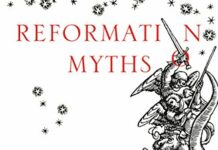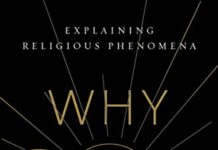
Ebook Info
- Published: 2004
- Number of pages: 504 pages
- Format: PDF
- File Size: 6.06 MB
- Authors: Rodney Stark
Description
Rodney Stark’s provocative new book argues that, whether we like it or not, people acting for the glory of God have formed our modern culture. Continuing his project of identifying the widespread consequences of monotheism, Stark shows that the Christian conception of God resulted–almost inevitably and for the same reasons–in the Protestant Reformation, the rise of modern science, the European witch-hunts, and the Western abolition of slavery. In the process, he explains why Christian and Islamic images of God yielded such different cultural results, leading Christians but not Muslims to foster science, burn “witches,” and denounce slavery. With his usual clarity and skepticism toward the received wisdom, Stark finds the origins of these disparate phenomena within monotheistic religious organizations. Endemic in such organizations are pressures to maintain religious intensity, which lead to intense conflicts and schisms that have far-reaching social results. Along the way, Stark debunks many commonly accepted ideas. He interprets the sixteenth-century flowering of science not as a sudden revolution that burst religious barriers, but as the normal, gradual, and direct outgrowth of medieval theology. He also shows that the very ideas about God that sustained the rise of science led also to intense witch-hunting by otherwise clear-headed Europeans, including some celebrated scientists. This conception of God likewise yielded the Christian denunciation of slavery as an abomination–and some of the fiercest witch-hunters were devoted participants in successful abolitionist movements on both sides of the Atlantic. For the Glory of God is an engrossing narrative that accounts for the very different histories of the Christian and Muslim worlds. It fundamentally changes our understanding of religion’s role in history and the forces behind much of what we point to as secular progress.
User’s Reviews
Editorial Reviews: Review “Winner of the History/Biography Award of Merit, Christianity Today Magazine””Winner of the 2004 Distinguished Book Award, Society for the Scientific Study of Religion””[Stark] writes with a clarity and concision that make him a pleasure to read. . . . A number of fondly held myths get demolished in this book.”—David Klinghoffer, National Review”This is a sociology of religion that takes seriously what people believe. Stark knows that beliefs have consequences. They can even change the course of history.”—David Neff, Christianity Today”[A] provocative volume–lucid and tightly reasoned.” ― Booklist”For the Glory of God . . . is an important book. It is immensely learned, consistently contentious, and filled with brilliant, if sometimes eccentric, insights. . . [F]or those who are open to a very different interpretation of the development of Western Civilization … For the Glory of God is strongly recommended.” ― First Things Review “I unequivocally recommend this book. Iconoclastic toward the conventional iconoclasts, it is likely to meet with considerable furor.”―David Martin, author of Does Christianity Cause War?”This important and brilliant new book makes a number of points desperately needed to be understood by academics, teachers, and lay people. The conventional wisdom on science, religion, witchcraft, slavery, and sects is unfortunately both firmly and falsely fixed. This book will clear up the muddle for anyone open minded enough to learn from it.”―Jeffrey Burton Russell, author of A History of Heaven From the Back Cover “I unequivocally recommend this book. Iconoclastic toward the conventional iconoclasts, it is likely to meet with considerable furor.”–David Martin, author of Does Christianity Cause War?”This important and brilliant new book makes a number of points desperately needed to be understood by academics, teachers, and lay people. The conventional wisdom on science, religion, witchcraft, slavery, and sects is unfortunately both firmly and falsely fixed. This book will clear up the muddle for anyone open minded enough to learn from it.”–Jeffrey Burton Russell, author of A History of Heaven About the Author Rodney Stark was for many years Professor of Sociology and of Comparative Religion at the University of Washington. In 2004 he became University Professor of the Social Sciences at Baylor University. He is the author of many books, among them The Rise of Christianity and One True God (both Princeton). Read more
Reviews from Amazon users which were colected at the time this book was published on the website:
⭐I warn potential readers that, although I still recommend this book for its historiography, it was not nearly as good as it could have been, due to multiple empirical errors he Stark makes. The empirical errors are particularly disappointing, because on the whole, Rodney Stark’s sociology and historiography of religion — particularly of Abrahamic religion — *in general* deserve vastly more recognition and applause than they appear to have ever received as far as I can discern.Nevertheless, Stark succeeds in this book in demonstrating that monotheism creates an ethos quite different from that found in polytheistic paganism, one that sees the cosmos as a more integrated, holistic system operating by laws and constants, constants man can discover through rational and empirical inquiry and which result in advancements pagan polytheism could never have cultivated. Different monotheisms will, of course, produce variance in particular outcomes based on doctrinal qualifications, and through inference from these doctrinal qualifications, Stark illustrates how Islam, despite being monotheistic and even Abrahamic, failed to excel in ways attained by its rival: Christianity.Having satisfactorily, I feel, summarized the book’s positive points without spoiling any of its content, I feel it necessary to progress in discussing the less favorable aspects of the book. I will begin with the embarrassing, inexcusable errors first, then proceed to the more nuanced errors.Perhaps the three worst aspects of this book are the following three claims he makes: (1) The falsehood that Martin Luther *ever* posted his Ninety-Five Theses on the door of the Castle Church at Wittenberg. In overwhelming likelihood, he never did. It’s fine for non-scholars to believe this myth, but there is no excuse for professional historians of Christianity to believe it. It has been common knowledge for many decades in the field that this event was never mentioned until after Luther’s death (as far as we know), not even by Luther himself. (2) That Luther *ever* said “Here I stand,” at the Diet of Worms. This cliché is as false as (1). Luther never said this. (3) Rejecting evolution and defending creationism. Discovering that Stark was a creationist in this book greatly lowered my respect for him.As far as more nuanced, excusable errors, the general principle underlying such errors owes to Stark’s seeming failure to distinguish between the *true* claim that Christian monotheism produced great progress for the world, and in particular for the excellence of Western Civilization, with the *false* claim that science and religion are therefore compatible methods of inquiry. Certainly not at the same time they aren’t. He neglects to grasp that Christianity established the initial impetus for the gradual separation of revealed theology and natural theology — a separation incapable of cultivation from within any polytheistic society. Scholastics, and so on, indeed spoke of the “two books” from which God’s creation was revealed — the Bible and the cosmos. The pious man sought God’s truth in inquiry into both “books.” This gradually developed into a schism between revealed theology (biblical theology) and natural theology (inquiry into the nature of God’s cosmos), and out of this schism, natural theology progressed to such an extent that it was no longer theology except in the deist sense. From there, the intellectual progeny of the natural theologians produced secular progress in reason, science, rationalism, empiricism, atheism/deism, free markets, and the scientific method of inquiry, building on the foundations laid by its laudatory predecessors in the Medieval university system first launched by Charlemagne and Alcuin and by the scholastics.In other words, one may view Christianity as an irrational system that produced rational outcomes. The most pronounced manifestation of Stark’s failure or refusal to recognize this occurs in the last third of his chapter on the Christian origins of science, when, as previously noted, he makes an unapologetic defense of creationism and unleashes a merciless polemic against Darwinism rooted in irrelevancies, misrepresentations of what Darwinism actually asserts, false claims about the alleged inadequacy of the fossil record (as though even if the fossil record were completely empty, science still does not abound with overwhelming evidence of the correctness of natural selection nevertheless), personal attacks, and so on. Given the topic of the book and chapter, it might not prove so significant had he not digressed completely from elaborating upon his thesis: that Christianity led to science. Of course, out of fairness, it’s a bit difficult to defend the origins of science when one adopts a belief system about biology which long ago lost all tenability.One moderately important point Stark missed which I consider of some importance is how Christian monotheism’s positive effects were enhanced by the early synthesis of Platonist metaphysics and Stoic cosmology into Christian thought. Both these features strengthened Christianity’s holistic view of the material world as a harmonious entity which the Lord operated according to fixed laws and constants. To repeat, since the discovery of laws and constants is a very large part of the scientific enterprise, this strengthened the drive to science.In a list of much more minor, almost pedantic, errors, one may include the following: Stark misrepresents David Hume as having been a deist and then an atheist, when in fact, the nature of Hume’s skepticism and empiricism led him to an ambiguous agnosticism. He somewhat misunderstands the Enlightenment as a secularist movement, when in fact, it was far more multifaceted and included both defenders and opponents of religion. The soundness of his definition of science, while on the whole correct, strikes one as somewhat dubious with regard to particularities. I find somewhat questionable his view on the dynamics between individuals and institutions in some parts, though not in any particularly destructive or misleading way. And although he very soundly proves that Christianity led to the abolition of slavery, he falsely claimed that free market economic development played no role in its disappearance. In fact, when capital accumulation rises sufficiently, slaves as capital goods become unsustainable — though not as consumer goods (e.g., sex slaves, entertainers, _et cetera_), unfortunately.As long as one takes the aforementioned critique into account, the book is worth reading on theoretical grounds. However, as noted, it could have been far better had it not been so empirically defective.
⭐Rodney Stark is a very thorough investigator and engaging author. Rather than just repeat the exaggerated, repetitious claims of those who are PC and enforcing stereotypes on history, Rodney actually does research, looking for data which characterizes events or periods which are caricatured by popular accounts. This particular book deals with the rise of monotheism and it’s different streams of thought and organization in the west; the unique rise of science and technology in this Western intellectual climate; exploration of witchcraft and similar trials across Europe (There were only 347 witchcraft trials (and ~900 defendants) from 1300-1499 and men were more likely than women to be executed; from 1540-1700 in Spanish Inquisition there were 44,701 cases from all offenses with a total of 826 executions); and the rise of anti-slavery attitudes in Christianity, unique among the major religions of the world, and the corresponding laws agains slavery, unique among many societies and nations in the world, even today;His style of writing is one I really enjoy. He has a good overview of direction he is going at major launching points in the text; he addresses the assumptions, data limitations, and logic behind his conclusions; he shows data summaries and anecdotal pictures or artwork from the periods in questions; he illustrates the exaggerations that are commonly taught as fact by accurate quotations; and he carefully defends what he believes to be the correct interpretation of the data. His writing is thus carefully phrased, without be academically dry and suited only for technologists working in the field.I would highly recommend this book as well as his others.
⭐This is an incredible read. This is one of the most thorough analyses on any particular subject out there, and Stark has meticulously left no stone unturned in explaining the role Christianity has had in shaping civilization. Though many think of Christianity’s influence on Western society as being merely tangential, and in some cases an obstacle (as I used to think), Stark’s thesis is that monotheism in general and Christianity in particular has been the primary force responsible for the emergence of science and the demise of slavery.And with some reflection Stark’s thesis makes sense. If religion shapes how one views his relationship to the supernatural, then, not surprisingly, that belief system will have a profound influence on every choice that person will make. If true, as Stark points out, different religious belief systems will produce different cultural, economic, political and technological results. Stark does a great job of explaining how polytheistic faiths reach different conclusions about moral issues versus monotheistic ones. Where Stark falls short is that the bulk of his book is about Christianity and he doesn’t specifically explain why Christianity, with its unique emphasis on Jesus, produced different results from the other two major monotheistic faiths: Judaism and Islam.The book has four main sections, each dealing with subjects in the subtitle. The least interesting, yet informative, is on Reformations. The most riveting is the section on Science. Stark boldly asserts that Christian theologians were the first in world history to conduct authentic science and were doing it long before they came across Greek philosophy. He points out, though early Christians found Aristotelian logic useful in developing a sound philosophical foundation for their theology, they found Aristotelian physics useless.What’s most impressive about this work is that Stark refuses to reach deductive conclusions based on broad sweeping assumptions. He backs his theories with a penetrating and nuanced analysis of the historical record along with a healthy use of statistics and regression analysis. An annoying quality of the book, however, is that Stark appears to be on a myth bashing mission. It’s clear Stark has an axe to grind with `Enlightenment’ thinkers and Marxist historians who he accuses of either distorting history or carelessly force fitting their theories. It isn’t so much that he’s wrong but he discusses ongoing debates between scholars, mentioning names and works, that laypersons are generally unfamiliar with.Overall this is a great work and it’s highly recommended for anyone who’s interested in learning about Western Civilization and the influence Christianity has had in shaping our modern society.
⭐Rodney Stark has written a book that every history and sociology student should read. It’s also a great resource for Christians wishing to research the triumphs and some of the mistakes that have been carried out in God’s name. I would also recommend it to aficionados of Religion like Dan Brown fans and people who love a conspiracy!The book deals with three topics over which there is much controversy and confusion. With tons of research and great sensitivity Stark separates truth from error and presents his own reasoned arguments. The careful reader is left with a much clearer picture of why the God of Christianity in particular has been such catalyst for change and shaped history so dramatically.The book is easy to read, although it contains some dense documentary in places, and is very rewarding. It is an excellent addition to any thoughtful person’s library.
⭐interesting view of how Christianity has shaped the development of science
⭐I enjoyed this book so much. It is clear, enlighting and enriching for someone who is not a scholar but has a great interest in this kind of issues. I will surely be reading more by this author soon.
Keywords
Free Download For the Glory of God: How Monotheism Led to Reformations, Science, Witch-Hunts, and the End of Slavery in PDF format
For the Glory of God: How Monotheism Led to Reformations, Science, Witch-Hunts, and the End of Slavery PDF Free Download
Download For the Glory of God: How Monotheism Led to Reformations, Science, Witch-Hunts, and the End of Slavery 2004 PDF Free
For the Glory of God: How Monotheism Led to Reformations, Science, Witch-Hunts, and the End of Slavery 2004 PDF Free Download
Download For the Glory of God: How Monotheism Led to Reformations, Science, Witch-Hunts, and the End of Slavery PDF
Free Download Ebook For the Glory of God: How Monotheism Led to Reformations, Science, Witch-Hunts, and the End of Slavery




